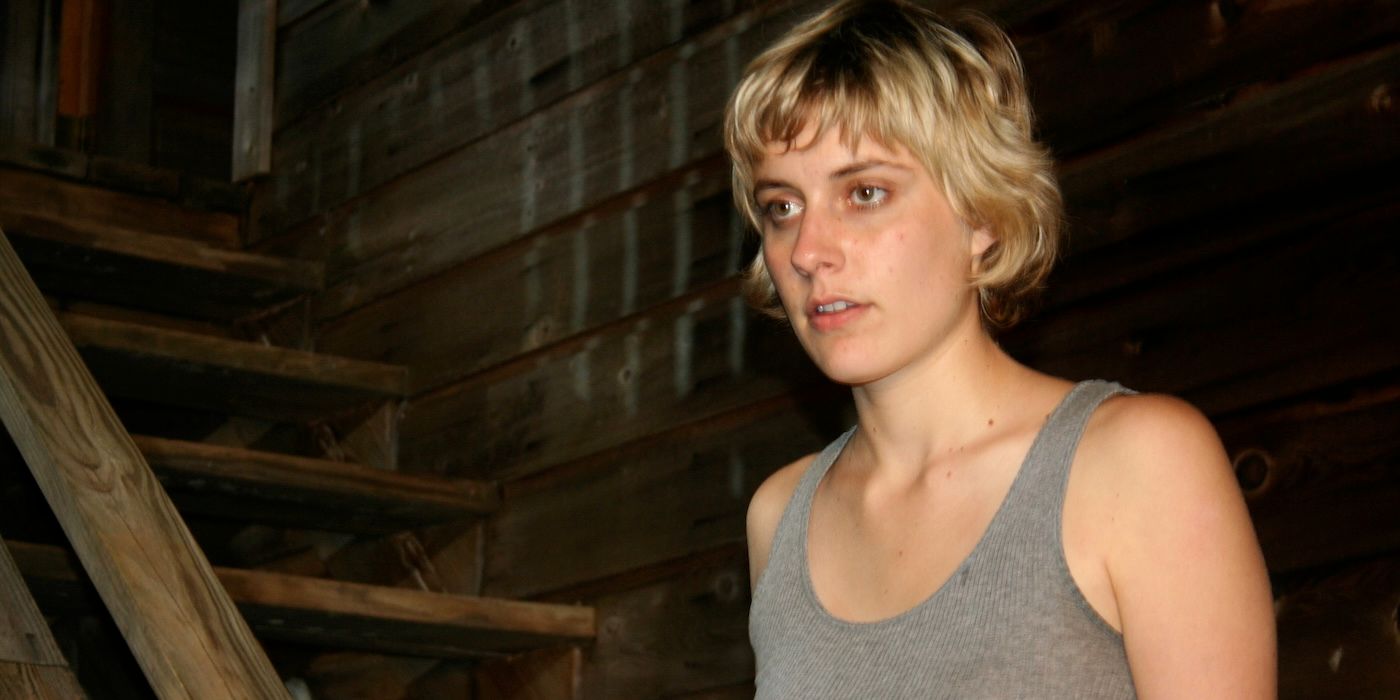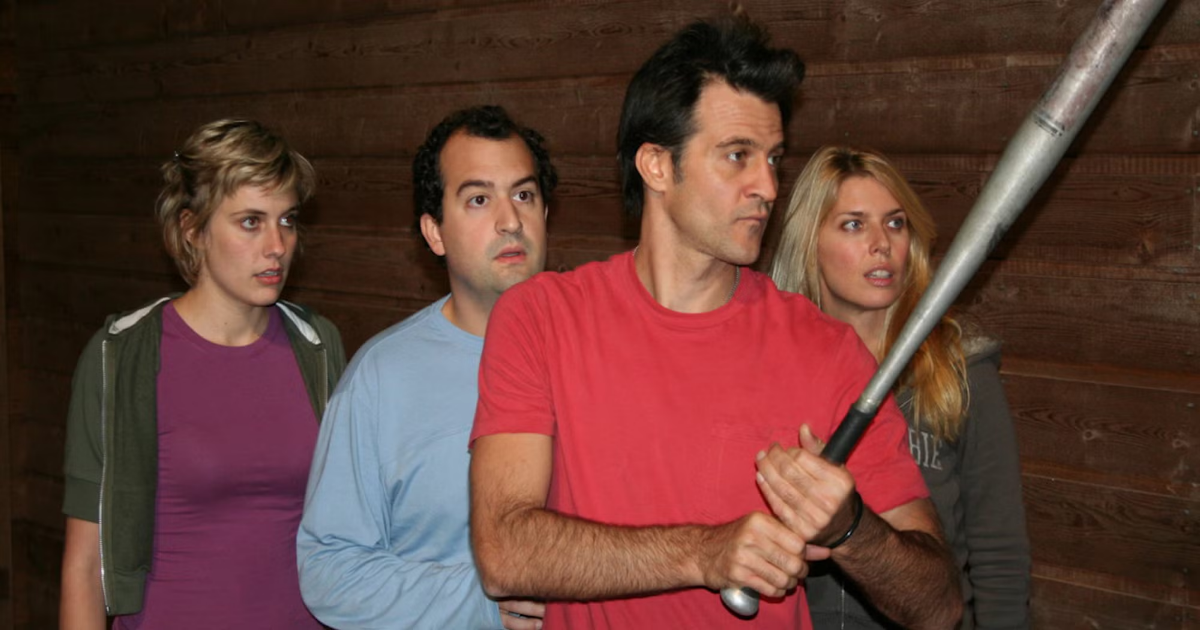In 2025, Greta Gerwig is now best known as the writer-director behind Lady Bird, Little Women, and Barbie, but before she became such a big name in Hollywood, she was known for starring in several indie mumblecore films. She earned wider recognition as an actress for her collaborations with Noah Baumbach, particularly Frances Ha, but one of Gerwig’s first roles was in the 2008 comedy horror film Baghead, written and directed by Jay and Mark Duplass, while she was still in college. Following four out-of-work actors who hole up in a cabin in the woods with the intention of writing a film for them to star in, Baghead is a comedic take on popular horror tropes and microbudget indie filmmaking. Baghead not only showcases Gerwig’s infectious charisma as an actress, but also feels like a precursor to Mark Duplass’ Creep series, poking fun at cinematic clichés in the process.
 Image via Sony Pictures Classics
Image via Sony Pictures Classics
Baghead opens in a movie theater, in which four friends, Matt (Ross Partridge), Chad (Steve Zissis), Michelle (Greta Gerwig), and Catherine (Elise Muller) are seated to watch a low-budget indie film being screened at an underground film festival. After it ends, director Jett (Jett Garner) reveals during a brief Q&A session that he was able to shoot the film on a $1,000 budget, which he was able to accomplish by using non-professional actors who didn’t even know they were being filmed until the film was complete. Though the film isn’t actually very good, Matt, who is an acquaintance of Jett’s, is inspired to make his own low-budget film. Matt and his friends are actors who work mostly as extras, so, desperate to break into the industry, he devises a plan for the four of them to spend the weekend at Chad’s uncle’s cabin writing a film for the four of them to star in.
Of course, their weekend writing session doesn’t go as planned, namely because of the tension building between the group. While Chad is crushing on Michelle, who only sees him as a friend, Michelle is crushing on Matt, who has been in an on-and-off relationship with Catherine for 11 years. While Catherine suggests their film be a relationship drama, Baghead really starts to pick up when Michelle has a dream that she went outside to vomit in the middle of the night and saw a man with a bag over his head lurking in the forest. Matt decides it’s the perfect premise for their film despite its obvious unoriginality, but the weekend takes a scarily unexpected turn when they spot a real “baghead” walking right past their window.
As it progresses, Baghead becomes the film Matt and his friends set out to make, combining Catherine’s suggestion of a relationship drama with Michelle’s horror movie-esque dream into a horror dramedy that’s still not exactly what it seems. The Duplass brothers manage to create something original by employing half a dozen movie clichés that aren’t just limited to the horror genre. Baghead evokes some classic horror films, like Friday the 13th – or pretty much any horror film about a masked killer – The Blair Witch Project, Texas Chainsaw Massacre, and of course, the “cabin in the woods” subgenre. The use of a hand-held shaky cam makes Baghead feel like a home movie or something out of the found footage genre, though the person holding the camera is not a character in the film, giving it an intimate but at times voyeuristic quality. It’s also an amalgamation of the low-budget mumblecore films the Duplass brothers would become known for, and the found footage Creep films Mark Duplass would produce and star in a few years after Baghead’s release.
Baghead is both a send-up and a love letter to the films, genres, and clichés it draws from. It pokes fun at the way Hollywood seems to churn out different versions of the same film every few years, and how the desire to make a name for yourself and create something original can push someone to employ practices that may be considered unethical. Matt’s misguided attempt to mimic Jett’s film leads him to trick his friends, almost getting one of them killed for the sake of producing authentic reactions out of them. It speaks to viewers’ desire to see something real, or at least something that’s sold to us as real, and how these kinds of films can be more thrilling than your run-of-the-mill slasher, because it more easily allows you to put yourself in the characters’ position and consider how you would react. In Baghead, the joke is not only on Matt’s friends, whose genuine terrified reactions he exploits for his own personal gain, but on the audience for believing this cliché-ridden dramedy would actually evolve into a real horror movie.

